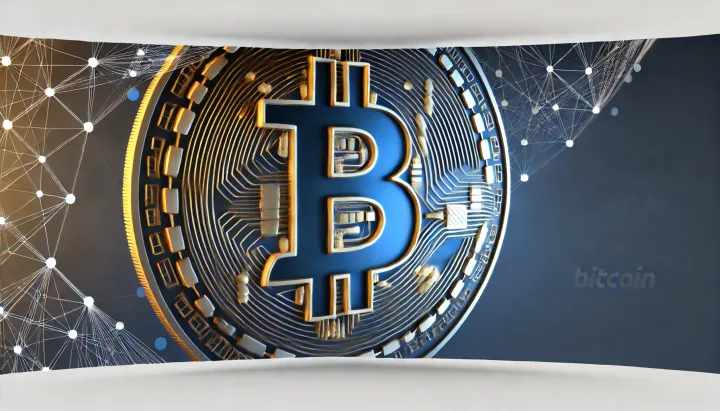Optimizing Bitcoin Treasuries & Rewards Strategies
The March 28, 2025 episode of the TFTC Bitcoin Alpha podcast, with guest Will Reeves, examines how innovative treasury accumulation and sustainable rewards systems are reshaping Bitcoin’s role as a long-term savings asset.

- My 'briefing notes' summarize the content of podcast episodes; they do not reflect my own views.
- They contain (1) a summary of podcast content, (2) potential information gaps, and (3) some speculative views on wider Bitcoin implications.
- Pay attention to broadcast dates (I often summarize older episodes)
- Some episodes I summarize may be sponsored: don't trust, verify, if the information you are looking for is to be used for decision-making.
Summary
The March 28, 2025 episode of the TFTC Bitcoin Alpha podcast, with guest Will Reeves, examines how innovative treasury accumulation and sustainable rewards systems are reshaping Bitcoin’s role as a long-term savings asset. The discussion highlights challenges in public market integration and regulatory shifts while emphasizing strategic corporate and consumer benefits. This insight is critical for aligning financial products with Bitcoin’s inherent strengths.
Take-Home Messages
- Treasury Optimization: Balancing aggressive Bitcoin accumulation with market volatility safeguards long-term corporate resilience.
- Sustainable Rewards: Transparent, value-enhancing rewards systems drive deeper consumer engagement and savings.
- Market Integration: Effective public market strategies must address volatility and regulatory hurdles to unlock growth.
- Institutional Alignment: Shifting policy and investor interest signal a maturing ecosystem that rewards long-term commitment.
- Consumer Empowerment: Clear financial tools based on Bitcoin foster trust and promote widespread adoption.
Overview
The discussion opens by detailing the importance of building a robust Bitcoin treasury as a core strategic asset, with Will Reeves emphasizing that treasury accumulation signals long-term commitment amid market fluctuations. This foundational strategy is portrayed as essential for companies seeking to reinforce their financial stability.
Reeves explains how Bitcoin rewards systems have evolved into accessible entry points for new users, contrasting them with traditional credit card rewards. He underscores that sustainable rewards not only ease adoption barriers but also incentivize deeper financial engagement and learning.
A significant focus is placed on integrating Bitcoin financial services into public markets, where the challenges of volatility and regulatory scrutiny are key concerns. Reeves and the panel deliberate on the strategic adjustments necessary for companies transitioning into this space.
The conversation also highlights evolving institutional perspectives and policy debates in Washington, D.C., noting that bipartisan interest is reshaping the regulatory landscape. The speakers advocate that a transparent, trust-based approach in treasury and rewards design can secure competitive advantage in a rapidly maturing market.
Stakeholder Perspectives
- Institutional Investors: Focus on balancing risk while optimizing Bitcoin treasury strategies.
- Corporate Leaders: Seek to integrate Bitcoin-driven financial products to enhance long-term value.
- Regulators and Policymakers: Monitor evolving policy and regulatory frameworks affecting Bitcoin services.
- Consumers: Demand transparent, accessible financial tools that build sustainable savings.
- Traditional Financial Institutions: Assess how Bitcoin innovations disrupt legacy rewards and loyalty programs.
Implications and Future Outlook
The episode underscores that companies with optimized Bitcoin treasury strategies can enhance corporate resilience, even in volatile markets. As these firms refine their approach, they can leverage treasury strength to secure better financing and invest in innovative financial services. This strategic edge is expected to drive both competitive differentiation and broader market confidence.
Sustainable rewards systems are portrayed as a key mechanism for shifting consumer behavior from speculative interest to long-term savings. By offering clear, transparent value, these products may fundamentally alter how individuals interact with financial tools, fostering deeper trust in Bitcoin as a savings asset. This evolution is poised to ripple across consumer finance, influencing broader economic trends.
Regulatory and institutional dynamics are evolving, with bipartisan interest in Bitcoin influencing policy debates in Washington, D.C. Companies that proactively address these regulatory challenges will be better positioned to integrate Bitcoin into public markets. The alignment of institutional investment and sound policy could accelerate adoption, creating a more stable and predictable environment for Bitcoin-based financial services.
Information Gaps
- How can companies optimize their Bitcoin treasury accumulation strategies in volatile markets? This question is vital for understanding how to balance rapid growth with risk management.
- How can Bitcoin rewards programs be designed to maintain long-term consumer engagement? Addressing this gap can help in developing products that foster sustained savings behavior.
- What challenges arise when integrating Bitcoin financial services into public market frameworks? This inquiry is crucial for mitigating operational and regulatory risks during market transitions.
- What are the emerging regulatory risks for Bitcoin financial services in shifting DC policy environments? Clarifying these risks is essential for both policy alignment and industry adaptation.
- What models best predict the impact of market volatility on consumer engagement with Bitcoin rewards? Accurate predictive frameworks are needed to tailor financial products to changing market dynamics.
Broader Implications for Bitcoin
Corporate Treasury Resilience
Optimizing Bitcoin treasury strategies may become a cornerstone for companies seeking enduring financial stability in volatile markets. Effective treasury management not only buffers firms against economic shocks but also signals strategic foresight to investors. This approach could redefine corporate valuation metrics within a digital asset framework.
Consumer Financial Empowerment
Innovative Bitcoin rewards systems can transform everyday transactions into opportunities for wealth accumulation. By lowering entry barriers and enhancing financial literacy, these systems empower consumers to actively participate in a decentralized savings ecosystem. Over time, transparent rewards models may drive broader adoption and reinforce economic resilience at the household level.
Regulatory Evolution Impact
Shifts in policy discussions suggest that future regulatory frameworks will increasingly support innovation in Bitcoin financial services. Clearer, adaptive regulations can reduce uncertainty in public market integration and bolster investor confidence. Proactive industry engagement with policymakers is essential to balance consumer protection with the drive for financial innovation.
Market Innovation Dynamics
Integrating Bitcoin into public markets is spurring a wave of product innovations that challenge traditional financial models. Emerging competitive strategies and new technological applications are reshaping how rewards and treasury functions deliver value. This dynamic evolution may influence global financial trends, catalyzing a broader transformation in economic systems.



Comments ()